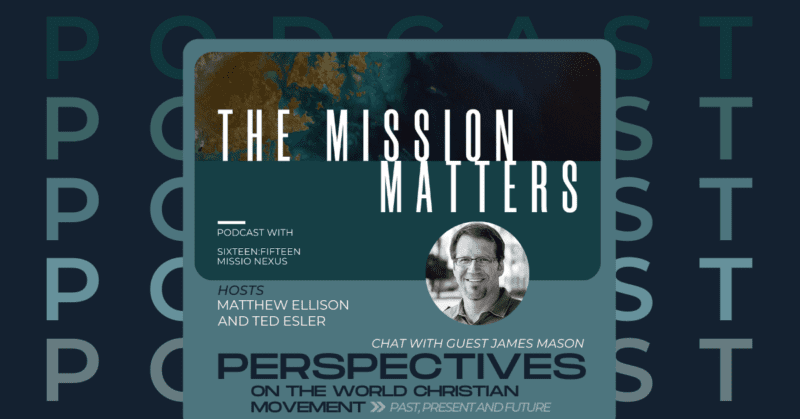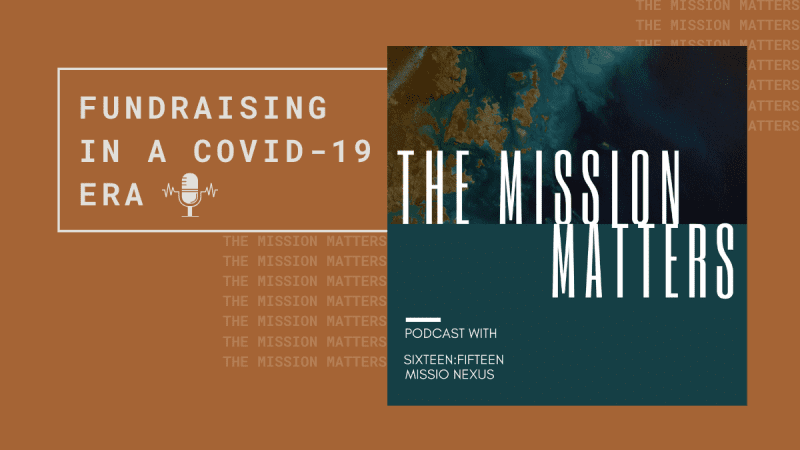SYMPOSIUM RESPONSE #3: Priority and Strategy
by John Becker
I commend Ted Esler for writing this helpful article. He raises important questions regarding the missiological impact of the concept of the unengaged. His four suggestions on the way forward are excellent and I want to be a part of seeing these realized. Although I affirm what Ted has written, I do want to challenge some of his conclusions.
I commend Ted Esler for writing this helpful article. He raises important questions regarding the missiological impact of the concept of the unengaged. His four suggestions on the way forward are excellent and I want to be a part of seeing these realized. Although I affirm what Ted has written, I do want to challenge some of his conclusions.
#1. A mobilization tool, not a missiological goal. Engaging the unengaged has always been about church-planting presence, not just presence alone. The first time I encountered this terminology was in 2005 during a discussion on priorities for our network. We believe we were acting in the spirit of the Apostle Paul, who made it his “ambition to preach the Gospel where Christ was not known” (Rom. 15:20) and according to his question “How can they believe in the one of whom they have not heard? And how can they hear without someone preaching to them?” (Rom. 10:14).
For lack of a better term, we adopted “unengaged” as a way to discuss prioritizing those people groups that, to our best knowledge, had no known laborers among them with the goal of seeing indigenous churches emerge. We then defined “engagement,” which includes sowing the good news in such a way that everyone can hear and movements may result. The real goal is multiplying communities of believers among all people groups (panta ta Ethne) so that the universal Church of Jesus Christ reaches its full maturity.
#2. Reductionist. I believe focus on engaging the unengaged is about priority and strategy. First, we must do everything possible to ensure there is access to and the presence of the gospel. Monitoring engagement follows this to ensure ongoing and effective church planting is underway. We define “effective” as strategies, with Holy Spirit empowerment, that lead to significant numbers of the population having a viable way to hear, respond to, and become disciples.
#3. Fog. We certainly have a long way to go. However, I believe Esler’s article does not appreciate the growing success of this focus. The average Christian does not know how the Church is doing on fulfilling the Great Commission and is surprised that there are still groups who have no access nor church.
Issachar, FTT, Call2All, Unleashed for the Unreached, and our network are making significant progress remedying this. Pat Murdock, executive director of Issachar, shared with me that as a result of the seven summits they have sponsored, over two thousand marketplace, mission, and church leaders had their first opportunity to embrace the unengaged as a priority. This has resulted in billions of dollars pledged and new strategic initiatives.
In our network, we have seen 259 new engagements since January 2008, as well as solid, time-oriented commitments to engage another dozen.
#4. Full-time workers. I want to also affirm Esler’s caution on assuming that engagement is only going to happen by “full-time workers,” which I believe him to mean full-time sent expatriate missionaries. In fact, we are seeing the most effective engagement and multiplication of churches by near-culture believers, and the resident diaspora church that has caught a vision for their unengaged neighbors.
#5. Collaboration. Esler touches on something very important—the need for deep, robust, and diverse dialogue about the unengaged. We have fallen short on this, but it has always been the goal. Those leading the conversation have sought to be biblical, spiritual, and inclusive. I believe this has not just been the product of America, but godly leaders from all over with a common passion for where there is no church. Together, let’s keep on learning towards obedience.
….
John Becker is director of ministries with AIM and international coordinator of the Global Muslim Ministries Network.
EMQ, Vol. 51, No. 2 pp. 143-144. Copyright © 2015 Billy Graham Center for Evangelism. All rights reserved. Not to be reproduced or copied in any form without written permission from EMQ editors.



